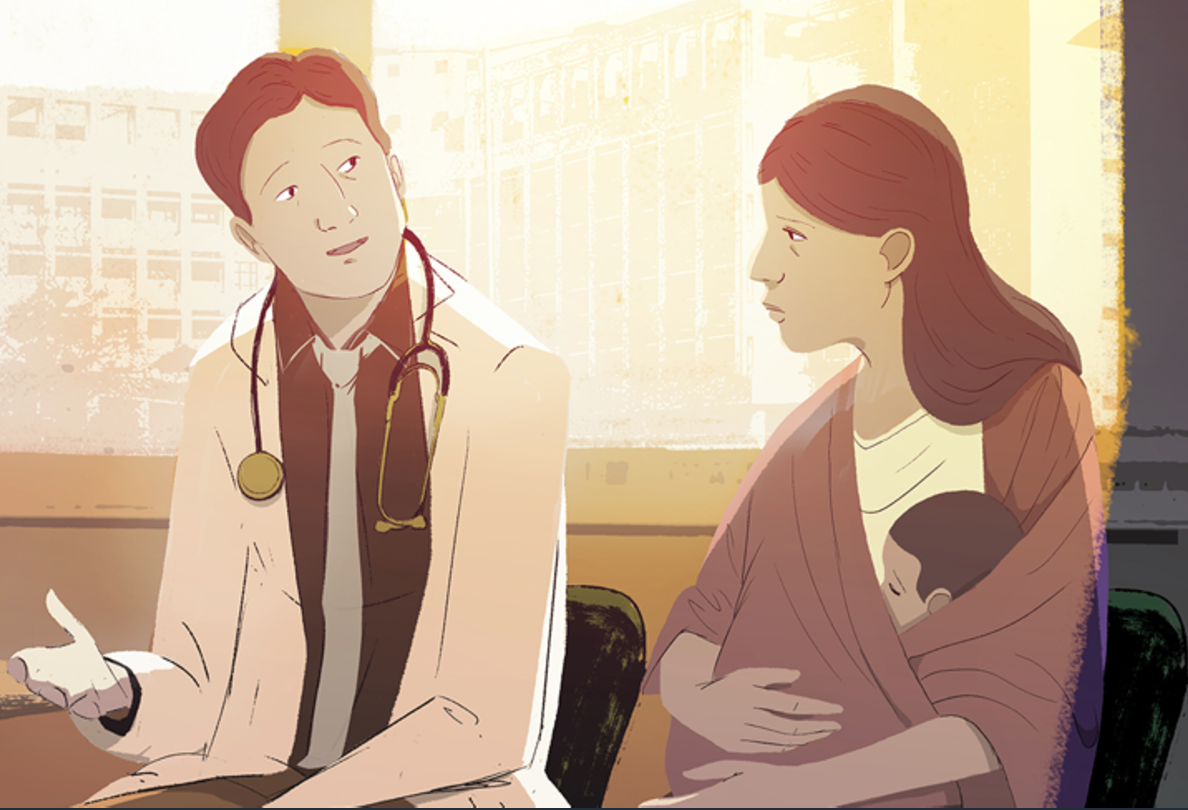As this year’s World Health Day (April 7) focuses attention on the issues surrounding depression, it’s important to acknowledge that mental health is not just a “first-world problem.” Depression is common in the developing world, and has substantial impacts on the well-being of those affected and their family members. IFPRI research in three developing countries found a high prevalence of symptoms of depression among mothers of young children, and that those mothers were more likely to have children suffering from undernutrition or illnesses. These findings suggest that supporting maternal mental health in the developing world can benefit both mothers and children.
The study “Maternal mental health is associated with child undernutrition and illness in Bangladesh, Vietnam and Ethiopia” used data from the baseline surveys of the multi-country impact evaluation of the Alive & Thrive program, which promotes breastfeeding and complementary best practices. In the surveys, mothers of infants and young children in Bangladesh, Viet Nam, and Ethiopia were interviewed about a variety of potential drivers of nutrition and health. IFPRI researchers found that maternal common mental disorders (CMDs), including depression, were common in each country: 49 percent of mothers in Bangladesh, 39 percent of mothers in Ethiopia, and 31 percent of mothers in Viet Nam experienced maternal CMDs.
The study found that maternal CMDs were associated with both child undernutrition and common illnesses. In Bangladesh and Viet Nam, mothers who suffered from mental health disorders were about 1.2 times more likely to have a stunted child (short for her age) than mentally healthy mothers. Many of the mothers experiencing depression were also found to have poorer hygiene and a lower likelihood of having attended prenatal care services than those who did not have CMD symptoms, the study found.
All three countries demonstrated associations between CMDs and common illnesses. Children whose mothers had symptoms of CMDs (compared to those who did not) were more than twice as likely to have upper acute respiratory infections in Viet Nam and Ethiopia, and 1.4 times as likely in Bangladesh. The odds of children of mothers with CMDs having diarrhea ranged from 1.67 times greater in Bangladesh to 2.11 times in Viet Nam. These connections to common illnesses suggest that mental disorders may hinder a mother’s ability to take adequate care of her child, use preventive health services, and adopt appropriate hygiene practices.
Focusing greater attention on programs that address maternal mental health and the factors that influence it, then, could have the added benefits of improving the health and nutrition of young children. Women’s groups and health committees that discuss maternal and child health problems have had proven success in treating mental health and improving breast-feeding practices. Expanding such social programs to support maternal mental health globally in other countries could ultimately improve overall public health.
David Richards is an IFPRI Media Relations Specialist; Phuong Nguyen is a Research Fellow and Purnima Menon a Senior Research Fellow in IFPRI’s Poverty, Health, and Nutrition Division (PHND); Marie Ruel is PHND Division Director.







